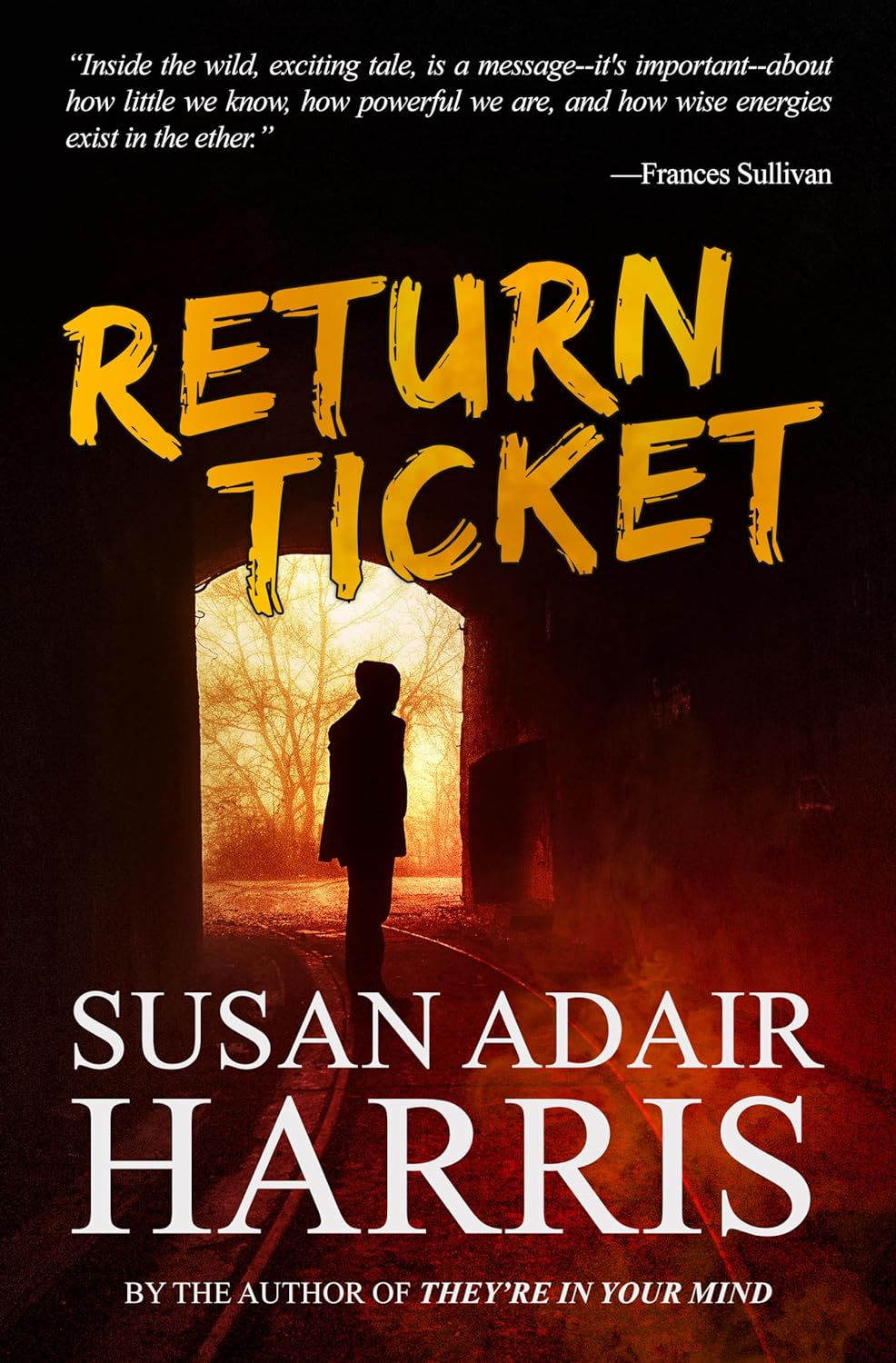 If Kenneth Simpson hadn’t died, he never would’ve involved himself as a witness to a hate crime murder. But his Near Death Experience leaves him utterly changed and confused. Who is he now and why does he care? RETURN TICKET was written utilizing credible reports and research so that readers who claim personal NDEs will recognize bits of their own repercussions. But RETURN TICKET doesn’t advocate for any particular religion or belief system. Here is a novel that quickens the blood in a fast read full of danger, intrigue, and love that dives deep into some of contemporary life’s most perplexing issues, including spirituality. Is there more to life and death than we know?
If Kenneth Simpson hadn’t died, he never would’ve involved himself as a witness to a hate crime murder. But his Near Death Experience leaves him utterly changed and confused. Who is he now and why does he care? RETURN TICKET was written utilizing credible reports and research so that readers who claim personal NDEs will recognize bits of their own repercussions. But RETURN TICKET doesn’t advocate for any particular religion or belief system. Here is a novel that quickens the blood in a fast read full of danger, intrigue, and love that dives deep into some of contemporary life’s most perplexing issues, including spirituality. Is there more to life and death than we know?
Part of the motivation for my writing the novel RETURN TICKET was to explore what people who had temporarily died according to modern measurements had to say about the Other Side and how the experience of visiting there affected them, if it did. After all, who better than an eye witness? Of course, anyone in law enforcement can tell you eye witness accounts aren’t always reliable, so I decided to research quantities of testimonies and reports from disparate perspectives so I could make my depiction of the consequences as realistic as possible. (I listed resources in the rear of my book.) I also interviewed people I trusted who met an NDE firsthand.
I’m not advocating any particular point of view. I write novels, so believe what you will and discard the rest. The first thing I learned was there seem to be different degrees of experience properly called an NDE. Some would say the variation is due to the amount of time spent in a death-state. Some argue that certain people are chosen to dive deeply into an alternative dimension.
Many, if not most, experiencers tend to have very positive, if fairly brief, experiences. Often, perceptions change at the scene of the accident/injury or in the hospital where the temporarily dead patient may report a sensation of floating above the lifeless body, able to perceive conversations and people outside their physical possibility. Not all patients go further. Effective medical treatment may pull them back. Frequently, however, the patient/victim reports zooming into some sort of tunnel or vortex that delivers them to an indistinct or exquisite realm that translates as unconditional love. A few see horrific (maybe hellish) images they may identify as retribution for a life badly used. Much of what the temporarily dead perceive relates directly to what they hope or expect to see—beloved deceased relatives, a religious figure, magnificent landscapes, etc.—that may be provided to them purposely to lessen their shock. Many are given an option of returning to living or are sent back for arriving too soon—before “their time.” Skeptics insist these images are generated solely by an oxygen-starved brain (or similar physiological phenomena).
Less easily dismissed are the less common NDEs that result in a dramatic permanent transformation in the person. These experiencers may have been chosen for their resilience, having already survived difficult lives before their death experience. Resilience is thought to be selected as a desirable trait because the person who goes deeply into an alternate reality and then returns to “normal” living will face derision, confusion, and immense challenges re-adapting—challenges so momentous that they often result in divorces or even suicides (because regular living can’t compare with what’s been seen). Some of these people will exhibit new personalities or astounding traits—such as untrained advanced skills, psychic talents, electrical discharges that disrupt electronics, etc. Many will demonstrate permanent interests or even obsessions they didn’t have before—in fields such as art, music, or helping others. Some will vaguely recall knowing answers to cosmic questions—answers that escape them as they attempt to remember. Many bring back a sense of having been given a mission to fulfill, although a few no longer have any idea what it was.
To enumerate NDEs, all or most first-hand accounts would have to be recorded, but many experiencers never reveal what they’ve witnessed out of fear of being labeled mentally ill. Some therapeutic professionals do contend such reports are evidence of disease. Military personnel who experience NDEs from combat wounds are referred to the psych division, so shrewd experiencers say they have PTSD, instead. NDE support groups exist and can be found online.
For more insight about how this novel came to be, check out the article I posted about it on my blog at www.PersonalJourneyswithGramma.com.







Follow Me!